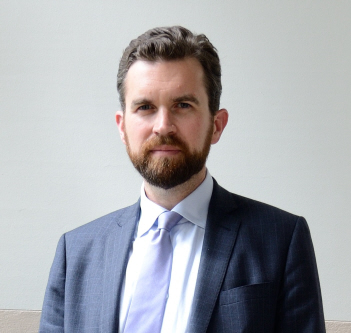Jan 21 2016
Quantum computing will change lives, society and the economy and a working system is expected to be developed by 2020 according to a leading figure in the world of quantum computing, who will talk tomorrow Jan. 21, 2016 at the World Economic Forum (WEF) in Davos, Switzerland.
 Professor Jeremy O'Brien, Royal Academy of Engineering Chair in Emerging Technologies and EPSRC RISE leader
Professor Jeremy O'Brien, Royal Academy of Engineering Chair in Emerging Technologies and EPSRC RISE leader
Professor O'Brien, Director of the Centre for Quantum Photonics at the University of Bristol and Visiting Fellow at Stanford University, is part of a European Research Council (ERC) Ideas Lab delegation who have been invited to talk at the annual meeting to industrial and political leaders of the world, including Prime Minister David Cameron. The session will discuss the future of computing and how new fields of computer sciences are paving the way for the next digital revolution.
Quantum computing has the capability to unlock answers to some of humanity's most pressing questions that are presently unsolvable with current computing technologies. In 2014, the UK government invested over £270 million in the development of quantum technologies, ensuring that the UK becomes the epicentre of a technology revolution and Professor O'Brien has been leading the development of quantum computing using light in its quantum state -- the photon -- as the key ingredient.
Professor O'Brien said: "In less than ten years quantum computers will begin to outperform everyday computers, leading to breakthroughs in artificial intelligence, the discovery of new pharmaceuticals and beyond.
"The very fast computing power given by quantum computers has the potential to disrupt traditional businesses and challenge our cyber-security. Businesses need to be ready for a quantum future because it's coming."
In his talk, Professor O'Brien will outline the current status of quantum computing and its potential applications and he will reveal his architectural blue-print for a manufacturable photonic quantum computer, showing all the components and a roadmap toward building a practical machine.
Quantum technologies offer ultra-secure communications, sensors of unprecedented precision and computers that are exponentially more powerful than any supercomputer for a given task. These technologies are destined to fundamentally change our lives and the first commercially available quantum devices are only now beginning to emerge.
As the holder of a prestigious Royal Academy of Engineering Chair in Quantum Engineering and an EPSRC RISE leader, Professor O'Brien has a ten year vision to engineer new quantum technologies that will inevitably disrupt todays ICT models, creating new businesses and valuable new markets.
The World Economic Forum (WEF) Annual Meeting of business and political leaders will take place from Jan. 20-23, 2016 in Davos, Switzerland.